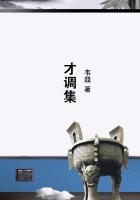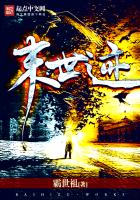Beyond it, through the mouth of an intersecting canyon, could be seen a clump of cottonwoods and willows that marked the home of the Creeches.Lucy could not see the shore nearest her, as it was almost directly under her.Besides, in this narrow road, on a spirited horse, she was not inclined to watch the scenery.She hurried Sarchedon down and down, under the overhanging brows of rock, to where the rim sloped out and failed.Here was a half-acre of sand, with a few scant willows, set down seemingly in a dent at the base of the giant, beetling cliffs.The place was light, though the light seemed a kind of veiled red, and to Lucy always ghastly.She could not have been joyous with that river moaning before her, even if it had been up on a level, in the clear and open day.As a little girl eight years old she had conceived a terror and hatred of this huge, jagged rent so full of red haze and purple smoke and the thunder of rushing waters.And she had never wholly outgrown it.The joy of the sun and wind, the rapture in the boundless open, the sweetness in the sage--these were not possible here.Something mighty and ponderous, heavy as those colossal cliffs, weighted down her spirit.The voice of the river drove out any dream.Here was the incessant frowning presence of destructive forces of nature.And the ford was associated with catastrophe--to sheep, to horses and to men.
Lucy rode across the bar to the shore where the Indians were loading the sheep into an immense rude flatboat.As the sheep were frightened, the loading was no easy task.Their bleating could be heard above the roar of the river.
Bostil's boatmen, Shugrue and Somers, stood knee-deep in the quicksand of the bar, and their efforts to keep free-footed were as strenuous as their handling of the sheep.Presently the flock was all crowded on board, the Indians followed, and then the boatmen slid the unwieldy craft off the sand-bar.Then, each manning a clumsy oar, they pulled up-stream.Along shore were whirling, slow eddies, and there rowing was possible.Out in that swift current it would have been folly to try to contend with it, let alone make progress.The method of crossing was to row up along the shore as far as a great cape of rock jutting out, and there make into the current, and while drifting down pull hard to reach the landing opposite.Heavily laden as the boat was, the chances were not wholly in favor of a successful crossing.
Lucy watched the slow, laborious struggle of the boatmen with the heavy oars until she suddenly remembered the object of her visit down to the ford.She appeared to be alone on her side of the river.At the landing opposite, however, were two men; and presently Lucy recognized Joel Creel and his father.A second glance showed Indians with burros, evidently waiting for the boat.Joel Creech jumped into a skiff and shoved off.The elder man, judging by his motions, seemed to be trying to prevent his son from leaving the shore.
But Joel began to row up-stream, keeping close to the shore.Lucy watched him.
No doubt he had seen her and was coming across.Either the prospect of meeting him or the idea of meeting him there in the place where she was never herself made her want to turn at once and ride back home.But her stubborn sense of fairness overruled that.She would hold her ground solely in the hope of persuading Joel to be reasonable.She saw the big flatboat sweep into line of sight at the same time Joel turned into the current.But while the larger craft drifted slowly the other way, the smaller one came swiftly down and across.Joel swept out of the current into the eddy, rowed across that, and slid the skiff up on the sand-bar.Then he stepped out.He was bareheaded and barefooted, but it was not that which made him seem a stranger to Lucy.
"Are you lookin' fer me?" he shouted.
Lucy waved a hand for him to come up.
Then he approached.He was a tall, lean young man, stoop-shouldered and bow-legged from much riding, with sallow, freckled face, a thin fuzz of beard, weak mouth and chin, and eyes remarkable for their small size and piercing quality and different color.For one was gray and the other was hazel.There was no scar on his face, but the irregularity of his features reminded one who knew that he had once been kicked in the face by a horse.
Creech came up hurriedly, in an eager, wild way that made Lucy suddenly pity him.He did not seem to remember that the stallion had an antipathy for him.
But Lucy, if she had forgotten, would have been reminded by Sarchedon's action.
"Look out, Joel!" she called, and she gave the black's head a jerk.Sarchedon went up with a snort and came down pounding the sand.Quick as an Indian Lucy was out of the saddle.
"Lemme your quirt," said Joel, showing his teeth like a wolf.
"No.I wouldn't let you hit Sarch.You beat him once, and he's never forgotten," replied Lucy.
The eye of the horse and the man met and clashed, and there was a hostile tension in their attitudes.Then Lucy dropped the bridle and drew Joel over to a huge drift-log, half buried in the sand.Here she sat down, but Joel remained standing.His gaze was now all the stranger for its wistfulness.Lucy was quick to catch a subtle difference in him, but she could not tell wherein it lay.
"What'd you want?" asked Joel.
"I've heard a lot of things, Joel," replied Lucy, trying to think of just what she wanted to say.
"Reckon you have," said Joel, dejectedly, and then he sat down on the log and dug holes in the sand with his bare feet.
Lucy had never before seen him look tired, and it seemed that some of the healthy brown of his cheeks had thinned out.Then Lucy told him, guardedly, a few of the rumors she had heard.
"All thet you say is nothin' to what's happened," he replied, bitterly."Them riders mocked the life an' soul out of me.""But, Joel, you shouldn't be so--so touchy," said Lucy, earnestly."After all, the joke WAS on you.Why didn't you take it like a man?""But they knew you stole my clothes," he protested.

